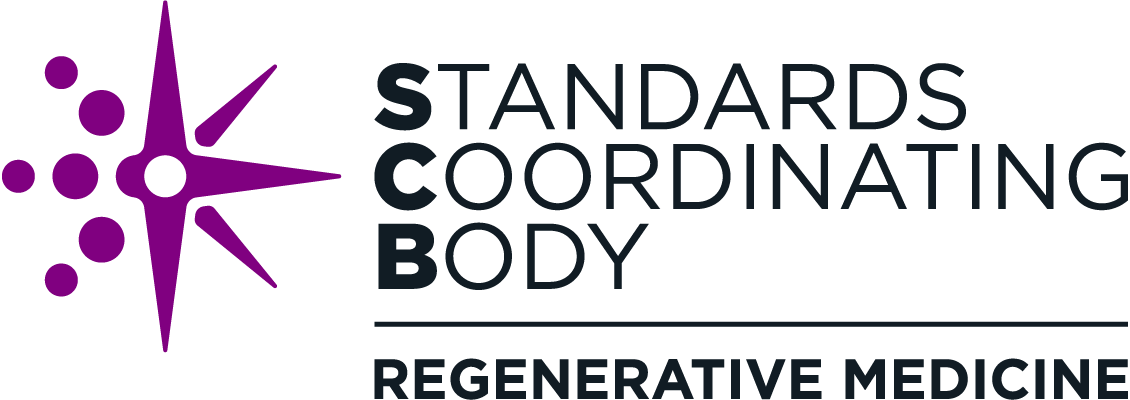Overview
The Standards Coordinating Body for Gene, Cell, and Regenerative Medicines and Cell-Based Drug Discovery (SCB) looks to complement the current SDO processes for standards development by engaging regenerative medicine stakeholders to ensure that new or revised standards provide the greatest benefits to the broad regenerative medicine community. To keep up with the fast-paced growth of regenerative medicine and advance standards specific to the field, SCB:
Engages the broader community in the identification, prioritization, and advancement of potential standards to incorporate a range of perspectives and expertise
Coordinates and communicates about standards activities across the regenerative medicine community to accelerate standards advancement
Educates the community about available standards and their benefits, standards development processes, and standards implementation
MISSION: Coordinate the accelerated advancement and improved awareness of the standards and best practices that address the rapidly evolving needs of the global regenerative medicine advanced therapy community
VISION: Improve patient lives through the widespread use of standards that enhance the consistency, availability, efficacy, quality, and safety of regenerative medicine therapies
Why SCB?
Regenerative medicine therapies present complex challenges related to scientific protocols, product testing, and product quality and performance specifications. The field of regenerative medicine also faces challenges common to emerging industries, including fragmentation of knowledge, insufficient communication and coordination, and unpredictable advancement of innovation. Improving the development and use of standards and best practices in regenerative medicine has the potential to help overcome some of these challenges.
However, for the regenerative medicine field to thrive, these standards and best practices must address the diverse needs of a variety of stakeholder groups, including:
Government and regulatory agencies
Researchers
Raw material providers
Product developers
Equipment manufacturers
Clinicians and healthcare professionals
SCB connects the regenerative medicine community to the standards development process and occupies a unique niche within the regenerative medicine ecosystem: with no vested interest in a particular scientific, commercial, clinical, or policy approach, SCB is focused on facilitating the use and development of standards in response to demonstrated need expressed by a range of stakeholders.
(click on the image for a larger view)
SCB’s Impact: Accelerating Standards Advancement
Since its inception, SCB has been successful at significantly reducing the time required to advance standards and standards drafts. In particular, SCB, in partnership with Nexight Group, has increased the efficiency of working with the broad regenerative medicine community to identify needed standards, prioritize those needs that will have the greatest impact on the field, and assess the feasibility of developing and implementing standards in these areas.
Without a coordinating body like SCB, these pre-development steps can take up to six years; with SCB’s support, these steps take only six months to one year.
(click on the image for a larger view)
SCB makes accelerated standards advancements possible. The potential speed of innovation across the regenerative medicine community will be increased by standards that improve the safety and quality of regenerative medicine products, reduce costs to both manufacturers and patients, and accelerate regulatory approval of new therapies.
SCB’s History
The Standards Coordinating Body (SCB) began as an initiative of the Alliance for Regenerative Medicine (ARM) and other regenerative medicine stakeholders and industry to facilitate the development of standards for the nascent regenerative medicine industry. The first of advanced therapies, including cellular and gene therapies, are on the cusp of approval and standards are urgently needed to manufacture and test these new therapies. In September 2016, the National Institute of Standards and Technology (NIST) and SCB established a Memorandum of Understanding (MOU), forming a partnership to jointly advance standards for the regenerative medicine community’s need. This MOU provides a mechanism for more cooperation with other U.S. agencies to work with industry, standards development organizations, and other stakeholders. SCB’s primary office is located on the NIST Gaithersburg campus to enable this coordination.
Formally launched in January 2017, SCB is now a fully independent, functioning non-profit organization. During the same year, the U.S. Food and Drug Administration (FDA) awarded a one-year contract to Nexight Group and SCB to engage with experts to recommend processes and outline a strategic plan for developing standards in regenerative medicine and advanced therapies. This work has helped to lay the foundation for standards development in regenerative medicine research and product development.
Following the initial contract, FDA has continued to provide Nexight Group and the SCB with funding to increase and accelerate the number of regenerative medicine standards being advanced in the field. These activities are intended to continue supporting the vision of the 21st Century Cures Act of 2016.




